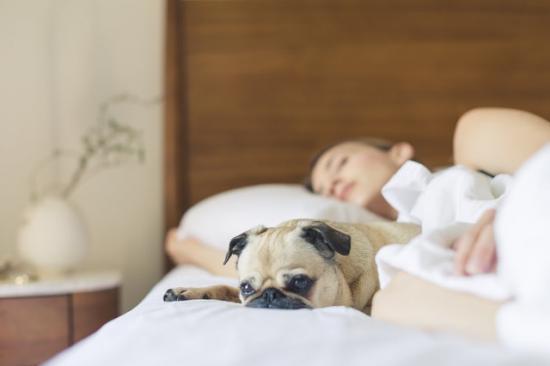Here’s What an Extra 20 Minutes of Sleep Does to Your Brain
The pandemic has been an extremely difficult time to live through, but one added benefit is that you might be getting more sleep. And if you’re fortunate enough to be able to work from home, you may find yourself sleeping in without having to worry about your commute. Rebecca Robbins, PhD, sleep expert and postdoctoral researcher at the Brigham and Women’s Hospital and Harvard Medical School, explains that an extra 20 minutes is all it takes to make a difference for your overall health.
“Sleep is of the brain, by the brain, and for the brain,” says Dr. Robbins, quoting sleep psychiatrist Allan Hobson. “If we all increased our sleep by 20 minutes, it would do a world of good for our mood, our health, and our productivity. We’re infinitely more efficient and better able to accomplish work and deliver a higher quality work product when we’re well-rested.”
Data analyzed between March 16 and April 3 from the SleepScore app found that when compared to pre-pandemic data, people were going to bed later at night but they were also sleeping an average of 23 minutes later in the morning, gaining about seven extra minutes of sleep. Additionally, people spent an average of 10 extra minutes in bed, lounging about.
This is especially good news considering that one of the benefits of getting more sleep is stronger immunity. Dr. Robbins conducted research that examined a group of people who got the recommended seven to eight hours of sleep a night to those who got less (even just 30 minutes less), and exposed them to a norovirus.
“We see experimentally when we curtail sleep below the recommended seven hours that risk for viral infection goes up many fold—nearly four times higher among those who are sleeping poorly or getting insufficient sleep, compared to those who are getting good rest,” says Dr. Robbins. “Isn’t that interesting? [Our experiment used] the same virus, everything else was controlled for, and in the well-rested condition, you lose your risk for infection by a significant amount. So, good sleep along with social distancing and hand washing is one of the best things we can do to stay healthy through this pandemic.” (To reiterate, Dr. Robbins’s study used a norovirus, a highly contagious virus that causes vomiting and diarrhea, not the virus that causes COVID-19.)
Not sleeping enough doesn’t just affect you in the short term. Dr. Robbins explains experimental studies with animal models show that it can have long-term impacts on physical health.





















